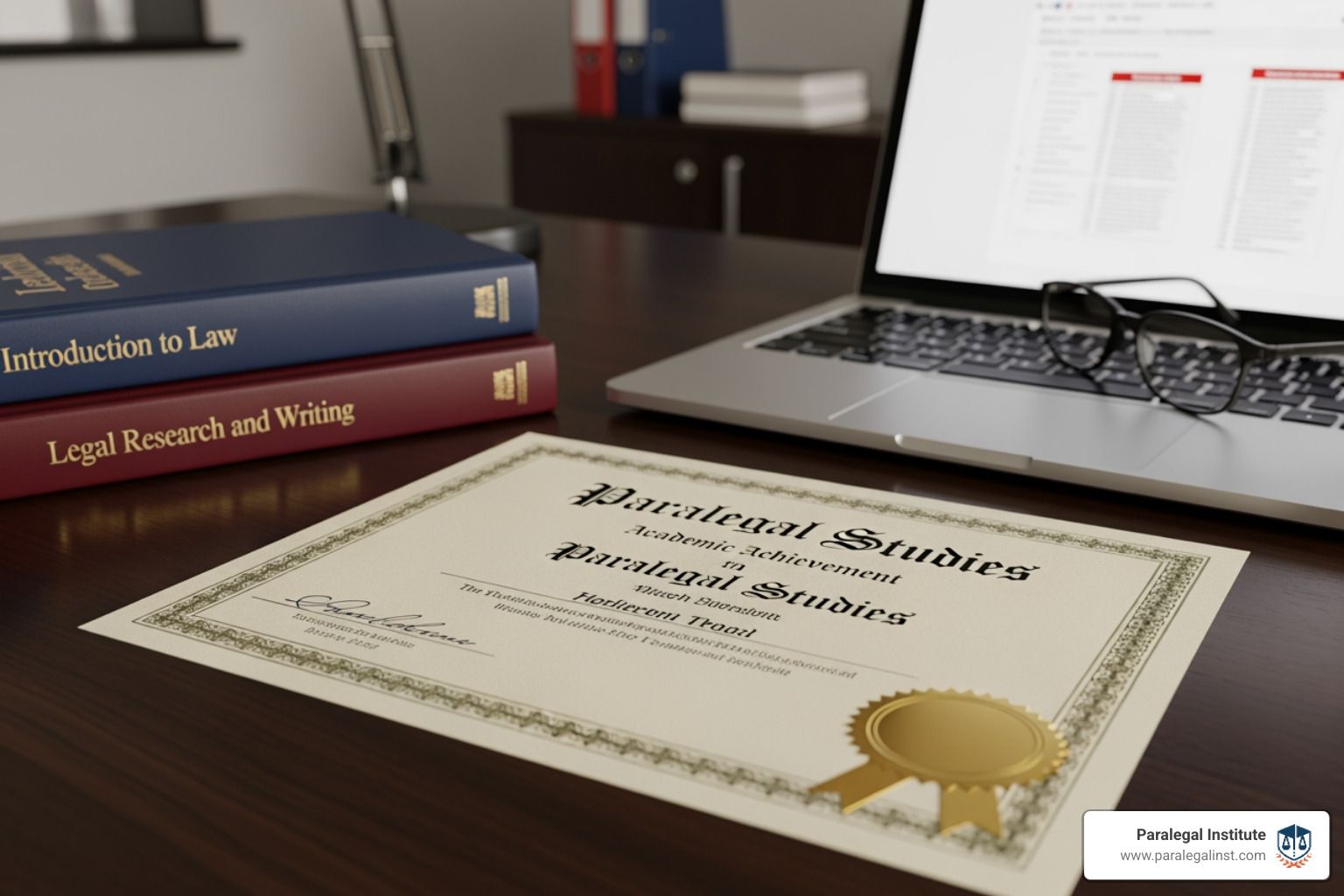Understanding Legal Research: A Guide for Paralegals
Legal research is a key part of a paralegal’s job. It involves finding and understanding laws, regulations, and case details. This research helps attorneys build strong cases and make informed decisions. A paralegal’s ability to gather accurate information is crucial in the legal process, which makes learning effective research strategies very important.
Understanding how to use research tools and resources is essential for paralegals. Many tools are available, from online databases to legal libraries and encyclopedias. These resources help find statutes, legal opinions, and other critical information needed for cases. Knowing how to navigate these tools efficiently saves time and improves the quality of the research.
Legal research is more than just finding information; it's about ensuring the data you collect is reliable and relevant. This task requires constant learning and adaptation. Paralegals must stay updated with new research methods and tools to remain effective. Engaging in continual education helps paralegals sharpen their skills and stay ahead, supporting their legal teams with accurate and comprehensive information.
The Basics of Legal Research
Legal research involves understanding laws, regulations, and precedents that apply to a specific legal question or situation. It is crucial for paralegals as it supports attorneys in crafting informed legal strategies and decisions. Paralegals often conduct thorough legal research to gather necessary information, ensuring all aspects of a case are considered.
Common legal research tools and resources include online databases like Westlaw and LexisNexis, which offer vast collections of legal documents, case law, statutes, and regulations. Libraries and government websites can also be valuable sources of legal information. Utilizing these resources effectively enables paralegals to track down relevant legal information quickly and accurately.
During legal research, paralegals typically seek various types of information, including statutory laws, case law precedents, regulations, and legal opinions. They might also look for commentary from legal experts and scholarly articles that provide insights into complex legal issues. Understanding what information is needed helps streamline the research process, allowing paralegals to focus their efforts efficiently and produce results that effectively support their legal team.
Steps to Conduct Effective Legal Research
Conducting effective legal research involves following a structured process. The key steps in this process help ensure thoroughness and accuracy:
1. Identify the Research Question
Clearly define the legal issue or question that needs to be addressed. This focus guides the direction of the research efforts.
2. Gather Resources
Collect all relevant materials and resources that will aid in finding necessary information, such as legal databases, textbooks, and statutes.
3. Search Strategically
Utilize databases and search engines to find information. Use keywords and filters to refine search results and locate the most pertinent data.
4. Analyze Findings
Review and analyze the collected information to determine its relevance and applicability to the research question.
5. Organize Data
Organize the findings systematically. Creating summaries and highlighting key points makes presenting the information to attorneys easier.
Having a set of guiding questions can further direct research efforts:
- What laws or cases directly relate to the issue?
- Are there any recent updates or changes in legislation?
- How have similar cases been interpreted by courts?
Organizing findings can be improved using digital tools like spreadsheets or document management systems. These allow for quick data access and retrieval, making it easier for paralegals to provide timely and accurate information to the legal team. By adhering to these steps and strategies, paralegals can conduct legal research effectively and contribute valuable insights to their cases.
Overcoming Challenges in Legal Research
Conducting legal research can sometimes be tricky due to various obstacles. Paralegals often face challenges like locating hard-to-find information or dealing with incomplete data. These issues can make research time-consuming and frustrating. Recognizing these hurdles can help in devising effective strategies to overcome them.
One common obstacle is accessing certain types of information, especially if it's hidden behind paywalls or specific databases. To tackle this, paralegals can explore alternative resources like public records or seek assistance from law libraries, where librarians can guide them to free resources or cost-effective alternatives. Networking with other legal professionals also helps gain insights into where specific information might be available.
Accuracy and reliability of sources are paramount in legal research. To verify a resource's credibility, look for well-regarded, peer-reviewed publications or official government websites. Cross-referencing information from multiple reliable sources also establishes trustworthiness. Avoid using outdated materials by checking publication dates and ensuring all references are current. Staying vigilant and critical in assessing sources helps maintain the integrity of legal research.
Staying Updated with Legal Research Techniques
Continuous learning is crucial to mastering legal research. Legal systems and tools are constantly evolving, making it important for paralegals to stay updated with new techniques and resources. Continuous improvement helps paralegals adapt to changes and enhance their research skills over time.
To keep abreast of new research tools and methods, paralegals can subscribe to legal newsletters or follow industry blogs that report on the latest trends and updates in legal research. These resources provide insights into recent changes, allowing paralegals to efficiently incorporate new technologies and methodologies into their work.
Participating in workshops and courses is an excellent way for paralegals to enhance their research skills. Many institutions offer short courses focused on the latest tools and research strategies. Engaging with these educational opportunities helps paralegals deepen their understanding of research, ensuring they remain competitive and competent in their field. By committing to continuous learning, paralegals can effectively support their legal teams with up-to-date research skills.
Conclusion
Mastering legal research is essential for paralegals aiming to provide solid support to their attorneys. Paralegals can enhance their efficiency and reliability by understanding the basics of legal research, developing effective research processes, tackling common challenges, and staying updated with the latest techniques. With the right strategies and a commitment to learning, they can play a pivotal role in successful legal proceedings.
Push your legal research skills to the next level with the Paralegal Institute. Our comprehensive program is designed to equip you with the practical skills necessary for a thriving career in the legal field. Join us to learn from experienced professionals and enhance your ability to support litigation effectively. Don't miss the opportunity to advance your career with confidence and expertise.










